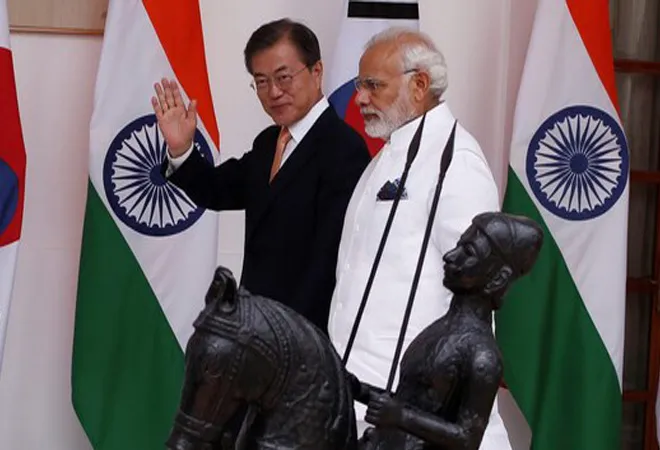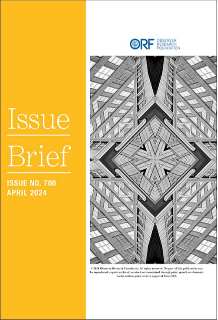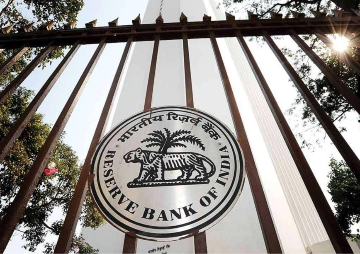
India and South Korea will be marking 50 years of their diplomatic relations established on 10 December 1973. During the course of this year, events, seminars, and visits discussing political, cultural, and economic ties and reflecting upon the long relations between the two will be held. But most importantly, it calls for further introspection on what needs to be done to strengthen the existing relations. As India and South Korea celebrate 50 years of diplomatic relations, we must find out why they have not reached their true potential and what factors can further these ties.
Identifying the missing element: Technology
Even though India and South Korea share many things, from
Buddhism to democratic values and a history of colonialism, a concrete connection between the two countries is still lacking. India and South Korea took different journeys in their political and developmental paths. India is the world’s largest democracy, a voice of the Global South, and a manufacturing hub for pharmaceuticals, IT, and electronics. Similarly, South Korea has also risen to be a leader in digital technology, innovation, research, and liberal democracy in Asia. The
trade volume between the two countries touched US$ 27.8 billion in 2022, showcasing the potential to do better; however, something is still lacking.
India and South Korea must look beyond their traditional economic interests and focus on the potential offered by technology to deepen their relations.
The reason that has kept relations from progressing is the strategic neglect of India. Even when there is a ‘special strategic partnership’ between the two countries, it is neither ‘special’ nor ‘strategic’. This is because the dominance of traditional economic interest has primarily prevailed, thus stagnating the ties and preventing them from expanding into new sectors. The absence of a
shared vision remains stark. However, ‘technology’ can expand and deepen relations. Technology is the new driver of alignments, and friend-shoring, trust, and democratic systems are emerging as vital markers of stability, prosperity, and security. India and South Korea can align for mutual interest and broader global stability in this shift, as
discussed during the 5
th India-Korea Foreign Policy and Security Dialogue in January this year.
Currently, India-South Korea’s ties are moving at a languid pace, especially in comparison to Japan-India relations. The latter relationship is a ‘
special strategic and global partnership’ in its true essence. Japan and India work beyond their geography in third countries and in bilateral settings, addressing regional concerns through the Quad and working to reform multilateral institutions like the United Nations (UN) through the G4. Even when the
trade between the two states is US$ 20 billion, less than that between India and South Korea, the relations are more vital. In the
ORF Foreign Policy Survey 2022, Japan emerged as a top partner for India in the Indo-Pacific region, with 31 percent voting in favour of it and 73 percent seeing Japan as India’s leading partner. Deepening of relations in defence, public infrastructure, connectivity, and tech, and more importantly, being a stakeholder in each other’s future has made India-Japan relations different from others. In his 2022 visit to India, Japanese PM Fumio Kishida had
committed an amount of 5 trillion yen for the next five years to ‘finance public and private projects’ after the successful completion of the earlier amount of 3.5 trillion yen. Japan-India relations show that countries can be a part of each other’s growth rather than just trade partners, which reflects a high level of trust. India and South Korea lack a substantial commitment to each other’s future and a vision that has remained static, exclusive of the tech partnership.
Deepening of relations in defence, public infrastructure, connectivity, and tech, and more importantly, being a stakeholder in each other’s future has made India-Japan relations different from others.
Taking the tech step in the relations
With the COVID-19 pandemic, the importance of cooperation, particularly on critical emerging tech, has taken centre stage worldwide. India has also recognised the vital importance of tech to the security, public safety, and prosperity of a nation. Recently, India-US elevated its
strategic partnership initiative on critical and emerging tech (iCET), focusing on ‘closer cooperation,’ ‘co-development, and co-production’. This
initiative recognises and explores the possibilities in biotechnology, artificial intelligence, quantum technologies, high-performance computing (HPC), advance material, and rare-earth processing technology, signalling a
partnership that is ‘committed to fostering an open, accessible, and secure technology ecosystem based on mutual trust and confidence’ based on ‘democratic values and democratic institutions.’ Besides the iCet, there is only one other similar initiative, which is the
India-EU Technology and Trade Council. The council has three working groups: ‘strategic technology, digital governance, and digital technology’; ‘green and clean energy technologies’; and ‘trade, investment and resilient values chains’. The tech partnerships between India and other major powers are based on trust in India's innovation ecosystem and growth. The recent
critical technology tracker report by ASPI, an Australian think tank, placed India in the top five countries, leading in 29 of 44 technologies.
South Korea is a major player in the semiconductor sector, and India has signalled its strategic intention to build capacity and manufacturing in the semiconductor sector with strategic investment through PLI initiatives.
In contrast, South Korea followed with the lead in 20 technologies. Surprisingly, as a significant tech hub with a growing innovation and research ecosystem, the ‘critical tech’ partnership between India and South Korea remains unexplored. Another area is the semiconductors supply chain; South Korea is a major player in the sector and
intends to align itself with the US strategic shift. India has also
signalled its strategic intention to build capacity and manufacturing in the semiconductor sector with strategic investment through PLI initiatives offering incentives of US$ 10 billion. Many countries like the US and Taiwan have shown interest. The International Semiconductor Consortium’s (ISMC)
announcement to invest US$ 3 billion was the first plan to set up a semiconductor fabrication unit in India, followed by
Singapore-based IGSS ventures. The US also
signed an MoU with India to establish a semiconductor sub-committee under the commercial dialogue. The dialogue’s focus is to ‘enhance public and private efforts to promote industry cooperation in the semiconductor sector’ to ‘develop stronger connections, complementary ecosystem, and a more diverse supply chain for semiconductors.’ Some domestic manufacturers have also announced their decision to join the race with
Vedanta-Foxconn being the first one, with
reports of Foxconn looking for a second unit. South Korea must explore the opportunities under the PLI scheme that offers incentives in the critical tech sector. This could emerge as a binding factor in the tech partnership, leading to better strategic relations, as it is
trying to do with Japan. Closer cooperation in technology would also require better people-to-people ties, which can be achieved by easy access, mobility, and interaction for businesses, researchers, and startups. South Korea can leverage India’s talent pool by offering scholarships to tech universities looking to
foster semiconductor engineers. With India’s growing defence sector and increasing exports, the ‘secure’ and ‘resilient supply chain’ of semiconductors becomes critical.
India and South Korea should explore the possibilities of critical emerging tech and build trust in each other's innovation ecosystem and growth to deepen their diplomatic relations.
In addition, South Korea-India’s growing defence cooperation is another area where the safety and resilience of semiconductors become vital. Traditionally, India's strategic relations with countries have progressed due to strong ties for many reasons, such as defence cooperation, strategic developmental partnership, or a combination of both. India's relations with Russia, the US, Israel, and France had progressed based on growing defence cooperation; on the other hand, India’s relations with Japan have strengthened over the years due to Japan’s effort in modernising India’s infrastructure and connectivity, both domestically and beyond, and also increasing defence relations in recent years. India and South Korea’s relations are based on
trade and commerce, with some examples of
defence cooperation. Substantial trade between the two countries have kept the relations positive irrespective of lack of cooperation in other sectors, but the rising negative perception associated with a trade deficit under the current administration has introduced an element of uneasiness. The recent direct
remarks by India’s Commerce and Industry Minister, Piyush Goyal, on South Korean corporations benefiting from CEPA signal towards
unfairness, and will likely adversely impact the ties if CEPA re-negotiations do not progress, which have been going on for many years and were delayed by COVID-19. This stance is shaped by domestic political considerations and would only grow if not addressed during the
negotiations on CEPA. In a
meeting between the trade ministers last year, a new trade target of US$ 50 billion was set for 2030, and it was agreed that ‘to achieve growth in a fair and balance
manner to the mutual advantage of both sides,’ this understanding would not be possible without more technology cooperation between the two countries.
Way forward
To ensure that economic ties between the two states remain strong, South Korea must diversify its relations in other sectors to distribute the risks. Defence, science and technology, clean energy, infrastructure, and connectivity are significant areas where India and South Korea can contribute to making substantial changes. As India modernises and expands its military due to increasing threats from China, South Korean defence manufacturers can benefit from policies to address the demands of India and the region. Another area of critical importance is clean energy; the energy transition focus in India allows South Korea to collaborate in clean energy initiatives, particularly in green hydrogen and wind energy. South Korea must repeat what it did in the 1990s by betting on India by investing in the auto sector, and this time it should be ‘technology.’ This tech step will help both countries to create strategic trust between institutions and signal a commitment to each other's progress. The tech and strategic partnership agenda have not moved since there have been no high-level political meetings between the two states since the pandemic. The intention expressed by the leaders of both states to ‘develop and deepen their strategic partnership’ remains stagnant. This year can shift relations between both countries if the partnership can be expanded to incorporate critical emerging technology, which will likely strengthen economic relations further and create trust. As the G20 heads of state meet, President Yoon and Prime Minister Modi can elevate this partnership by expanding into new sectors creating a broad area to collaborate upon and enhancing bilateral relations by elevating the ‘2+2’ format to Foreign and Defence ministers. This will also motivate tech-startups and small companies to venture into each other’s ecosystem and leverage opportunities for mutual interests.
The views expressed above belong to the author(s). ORF research and analyses now available on Telegram! Click here to access our curated content — blogs, longforms and interviews.



 India and South Korea will be marking 50 years of their diplomatic relations established on 10 December 1973. During the course of this year, events, seminars, and visits discussing political, cultural, and economic ties and reflecting upon the long relations between the two will be held. But most importantly, it calls for further introspection on what needs to be done to strengthen the existing relations. As India and South Korea celebrate 50 years of diplomatic relations, we must find out why they have not reached their true potential and what factors can further these ties.
India and South Korea will be marking 50 years of their diplomatic relations established on 10 December 1973. During the course of this year, events, seminars, and visits discussing political, cultural, and economic ties and reflecting upon the long relations between the two will be held. But most importantly, it calls for further introspection on what needs to be done to strengthen the existing relations. As India and South Korea celebrate 50 years of diplomatic relations, we must find out why they have not reached their true potential and what factors can further these ties.
 PREV
PREV


